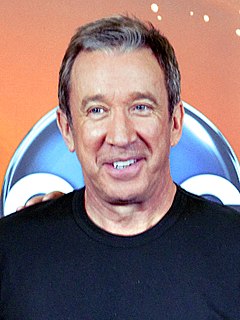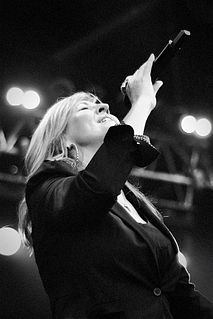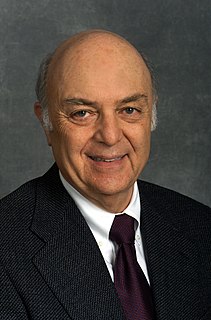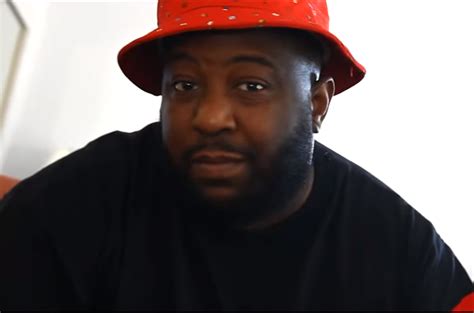A Quote by Tim Allen
I'm a pretty solid Christian. But even as an altar boy, I was always asking the bigger questions--you know: if God is, in fact, good, what is all this death I see? And if God is gentle, what is all this suffering I see? I've found some of the answers in Eastern religion. It explained my Christianity to me. Good and evil are the same thing. You can't have one without the other. It's the balance, it's the temperance of things.
Related Quotes
Christians have always tended to transform the Christian Revelation into a Christian religion. Christianity is said to be a religion like any other or, conversely, some Christians try to show that it is a better religion than the others. People attempt to take possession of God. Theology claims to explain everything, including the being of God. People tend to transform Christianity into a religion because the Christian faith obviously places people in an extremely uncomfortable position that of freedom guided only by love and all in the context of God's radical demand that we be holy.
The question is absurd: when you ask, 'If God is both all good and all powerful, why then does He allow suffering?', what you are really asking is, 'If God is both all good and all powerful, why then can He not make me (the questioner) - who is just as much a part of a universe in which there is suffering as is any other part - be at the same time the exact same questioner, but one who is now part and parcel of a universe in which there is no suffering?' Which, reduced down, is the same thing as asking, 'Why can there not be, at the same time, X and the preclusion of X?'
I guess early on in my Christian walk, you know, people said to me, "Never question God" you know? But actually I just found Him to be such a good Father. He's such a good Father and He spoke to me in amazing ways that I'm sure I never would have learned some of these things on mountaintops, you know? I thought I knew how much he loved me, but then one day He asked me "What do you believe?" And I'm like, "I believe this and this and this and this" you know. I was a very good Christian in all my answers, and then he said, "No, no, what do you believe, Daughter, about how much I love you?"
In science we see progress. In art there is no progress. In art the questions have always been the same. From the beginning of time till now, we are always asking the same questions. There are very few. We are looking for God, we are asking why we die, we are contemplating sex and the beauty of nature. The only thing that changes is that, in each period of questioning, we speak with the language of our time.
People are tempted to think (understandably) that if God were really good He'd never allow any evil in the world at all. But I don't think a perfectly good God would never permit any evil, and neither would others, I wager, if they thought about it. Rather, I think that a good God always prevents suffering and evil unless He has a good reason to allow it. That's the crux.
The only answer to this, and it isn't an entire answer, said Father Travis, is that God made human beings free agents. We are able to choose good over evil, but the opposite too. And in order to protect our human freedom, God doesn't often, very often at least, intervene. God can't do that without taking away our moral freedom. Do you see? No. But yeah. The only thing that God can do, and does all of the time, is to draw good from any evil situation.
Christianity is not a religion. Christianity is the proclamation of the end of religion, not of a new religion, or even of the best of all religions. If the cross is the sign of anything, it's the sign that God has gone out of the religion business and solved all of the world's problems without requiring a single human being to do a single religious thing. What the cross is actually a sign of is the fact that religion can't do a thing about the world's problems - that it never did work and it never will
In the story of the Creation we read: ". . . And behold, it was very good." But, in the passage where Moses reproves Israel, the verse says: "See, I have set before thee this day life and good, and death and evil." Where did the evil come from? Evil too is good. It is the lowest rung of perfect goodness. If you do good deeds, even evil will become good; but if you sin, evil will really become evil.
Ah, the truth, what a thing it is! I sacrifice so much for it, with people: I forego, for truth's sake, discretion, loyalty, diplomacy, tact, polite manners, elegance, grace, poise, balance, good taste, conformity, image-role, fashionableness, polish, confidences, promises, ambition, consistency, identity, clarity, comprehensibleness, good will, hypocrisy, and lots of other things--amass sacrifice, at truth's altar. God! is truth worth it? I hope it is. It better be, in fact.
I'm gonna be a respectable dude. When people talking to me, I'm gonna show everybody respect. I just wanted to do that, I needed some kind of balance and I think that Islam was perfect for me. It ain't nothing different than Christianity, we all believe in Jesus, we all believe in God, it's just that Islam really helped me balance out who I am. Cuz if I can go all day without making Salaat or asking for forgiveness or giving thanks, you know, I would probably be a lunatic. So that's what gave me balance.
For, after all, if it is from Christ that we are to learn how God relates himself to sin, suffering, evil, and death, it would seem that he provides us little evidence of anything other than a regal, relentless, and miraculous enmity; sin he forgives, suffering he heals, evil he casts out, and death he conquers. And absolutely nowhere does Christ act as if any of these things are part of the eternal work or purposes of God.
You know, around 14 or 15 I rebelled against Christianity pretty hardcore. I was reading a lot of other esoteric Eastern philosophy and getting into everything that wasn't dogmatic Christian. But I will say that it did kind of prime me for a more spiritual lifestyle. I didn't walk away with bitterness, even though there was some condemnation.
I don't see any sign of God in this world, in the place where we live and things we know. It can all be explained to my mind perfectly satisfactorily without God. But in the great darkness beyond this little spark of light where I live, of course there may be all kinds of things. There may be a god. So I'm really an agnostic.


































